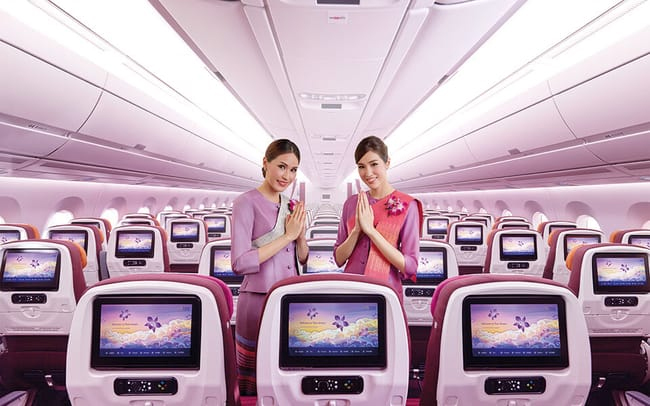THAI Airways no longer a state enterprise, as govt sells stake

The Thailand government has sold a 3.2% stake in national carrier THAI Airways. The government’s stake now stands at 47.86%, ending the airline’s days as a majority-owned state enterprise.
A total of 69.2 million shares were sold to Vayupak, a mutual fund run by the Krung Thai Bank.
“The Cabinet agreed the government will reduce its holding in THAI Airways to under 50%, ending the airline’s status as a state-enterprise,” Saksayam Chidchob, Thailand’s transport minister said last week.
With the exception of 2016, the airline has posted losses since 2012 and carries debts of approximately $2.9 billion. In 2019, THAI Airways lost $376 million and in the first half of 2020, the airline is expected to lose around $565 million.
Currently, THAI has suspended all international flights and is running some limited domestic routes. But with no real relief on the horizon, the Thai Government is moving to restructure the airline while under the formal bankruptcy protection rules.
By seeking the protection of a formal restructuring process, Thai Airways can prevent its assets and aircraft from being seized by creditors. Friday’s filing in the Securities and Exchange Commission (SEC) protects its assets and aircraft in the United States. Some 35% of THAI’s creditors are based in the United States.
However, as a majority state-owned enterprise, THAI Airways faced significant legal barriers in accessing that formal protection. By selling the stake and ridding the airline of majority state-owned status, THAI Airways is able to better access the protections and provisions of Thai bankruptcy law.
The restructuring plan to be supervised by the Central Bankruptcy Court will see THAI Airways 74 strong fleet reduced and leased aircraft go back to lessors. THAI Airways has 53 aircraft on lease, 30 of them leased from Airbus. The manufacturer is reported to be calling in those leases. Among the airline’s leased planes are six A380s, fifteen A350-900s, fifteen A330-300s, and twenty A320-200s.
Thailand’s prime minister, General Prayut Chan-o-cha, called the decision difficult but necessary.



